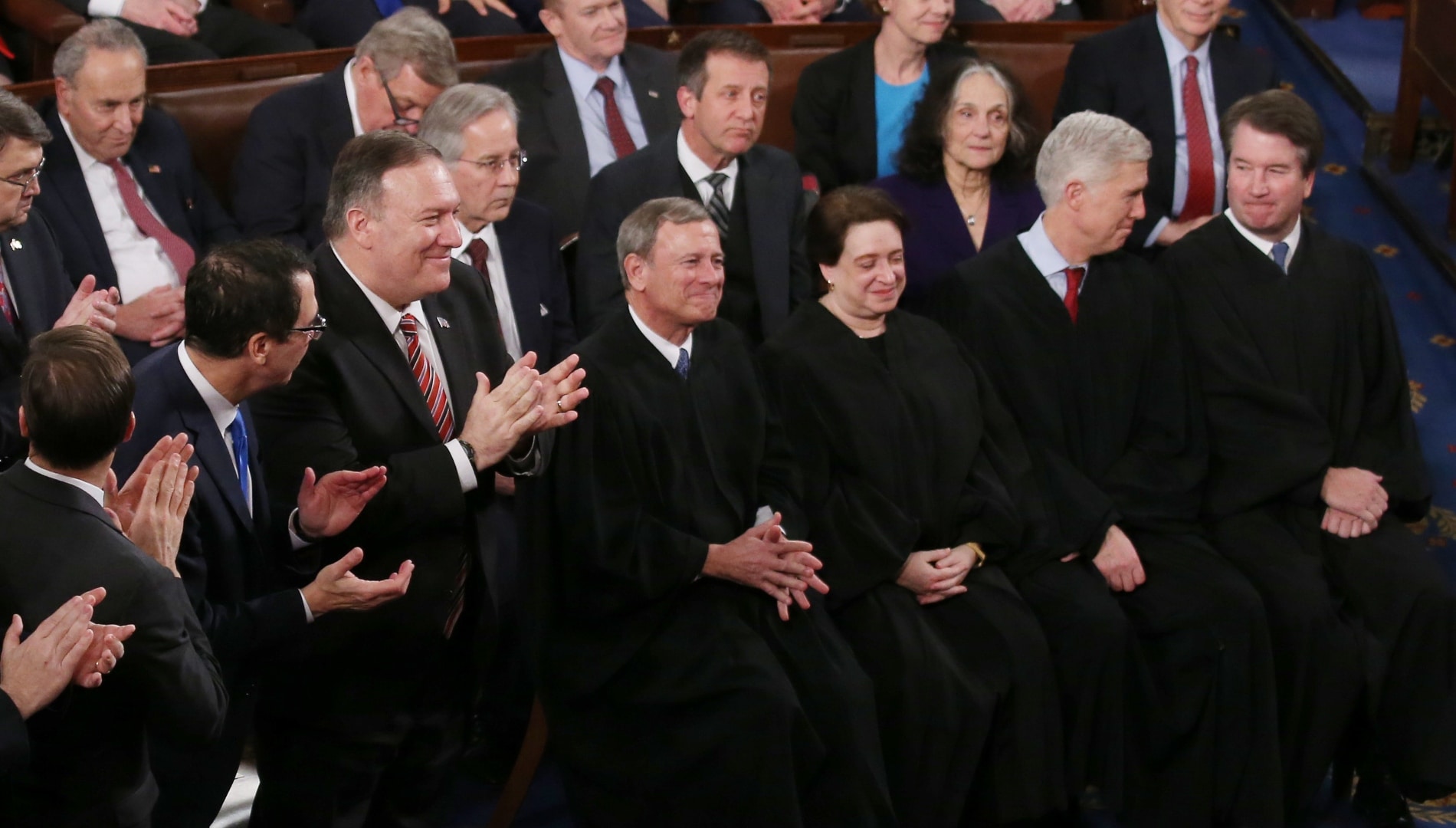OPINION: This article may contain commentary which reflects the author's opinion.
Americans are rapidly losing faith in the majority of their government institutions in what amounts to a significant crisis of trust, including the job performance of the nation’s highest court.
According to a late September survey from Gallup, trust in the U.S. Supreme Court is at a historic low, and significantly down from a high of 80 percent in 1999. Today, 47 percent “of U.S. adults say they have ‘a great deal’ or ‘a fair amount’ of trust in the judicial branch of the federal government that is headed by the Supreme Court,” the polling firm reported.
“This represents a 20-percentage-point drop from two years ago, including seven points since last year, and is now the lowest in Gallup’s trend by six points. The judicial branch’s current tarnished image contrasts with trust levels exceeding two-thirds in most years in Gallup’s trend that began in 1972,” the pollster added. “In addition to documenting record-low trust in the federal judiciary, the new Gallup poll also finds a record-tying-low 40% of Americans saying they approve, and a record-high 58% saying they disapprove, of the job the Supreme Court is doing.”
The pollster added:
A third measure of the high court, from Gallup’s June Confidence in Institutions poll, found confidence in the Supreme Court also at a new low. That poll was conducted before the court issued the Dobbs decision but after the leak of a draft opinion in that case signaled that the court was poised to overturn Roe.
By all Gallup measures, then, Americans’ opinions of the Supreme Court are the worst they have been in 50 years of polling.
The nation’s highest court is not the only American institution suffering from a loss of confidence. In July, Gallup reported that trust in 11 of 16 institutions had declined significantly, with the average level of trust at a new low, driven by an 11 percent decline in the Supreme Court and a 15 percent decline in the presidency.
Americans had the most trust in small businesses (68 percent), the U.S. military (64 percent) and law enforcement (45 percent). They had the least trust in Congress (7 percent), TV news (11 percent), and big business (14 percent).
After the unprecedented leak of the Dobbs decision in May, Chief Justice John Roberts ordered an investigation into who was responsible but thus far, there have been no suspects named publicly.
In an interview with CNN anchor Chris Wallace late last month, recently retired liberal Supreme Court Justice Stephen Breyer said he has not been informed that the leaker has been identified.
“Within 24 hours the chief justice ordered an investigation of the leaker. Have they found him or her?” Wallace asked.
“Not to my knowledge, but … I’m not privy to it,” Breyer responded.
Wallace followed up by asking: “So in those months since, the chief justice never said, ‘Hey, we got our man or woman?’”
“To my knowledge, no,” again responded Breyer, who — despite being retired — maintains an office at the Supreme Court. Other justices have also spoken about the identity of the leaker and the court’s investigation.
Justice Neil Gorsuch revealed earlier this month that he hopes the investigation into the leak will soon be completed.
“The chief justice appointed an internal committee to oversee the investigation,” Gorsuch said. “That committee has been busy, and we’re looking forward to their report, I hope, soon.”
At the time, the nation’s highest court admitted that a “copy of a draft opinion in a pending case” was made public, but added that it did “not represent a decision by the Court or the final position of any member on the issues in the case.” Nearly four months after the leak, the identity of the leaker is still unknown, however.
Rep. Matt Rosendale (R-Montana) said he believed that at least some of the justices know the leaker’s identity. “We all could probably agree that the justices that were appointed by Democrat presidents know who the leaker was,” he said. “What bothers me, it’s not only the undermining that it did of the institution and the trust factor that these folks have with each other,” it’s that now that the trust is broken, “it’s very difficult to restore it.”
